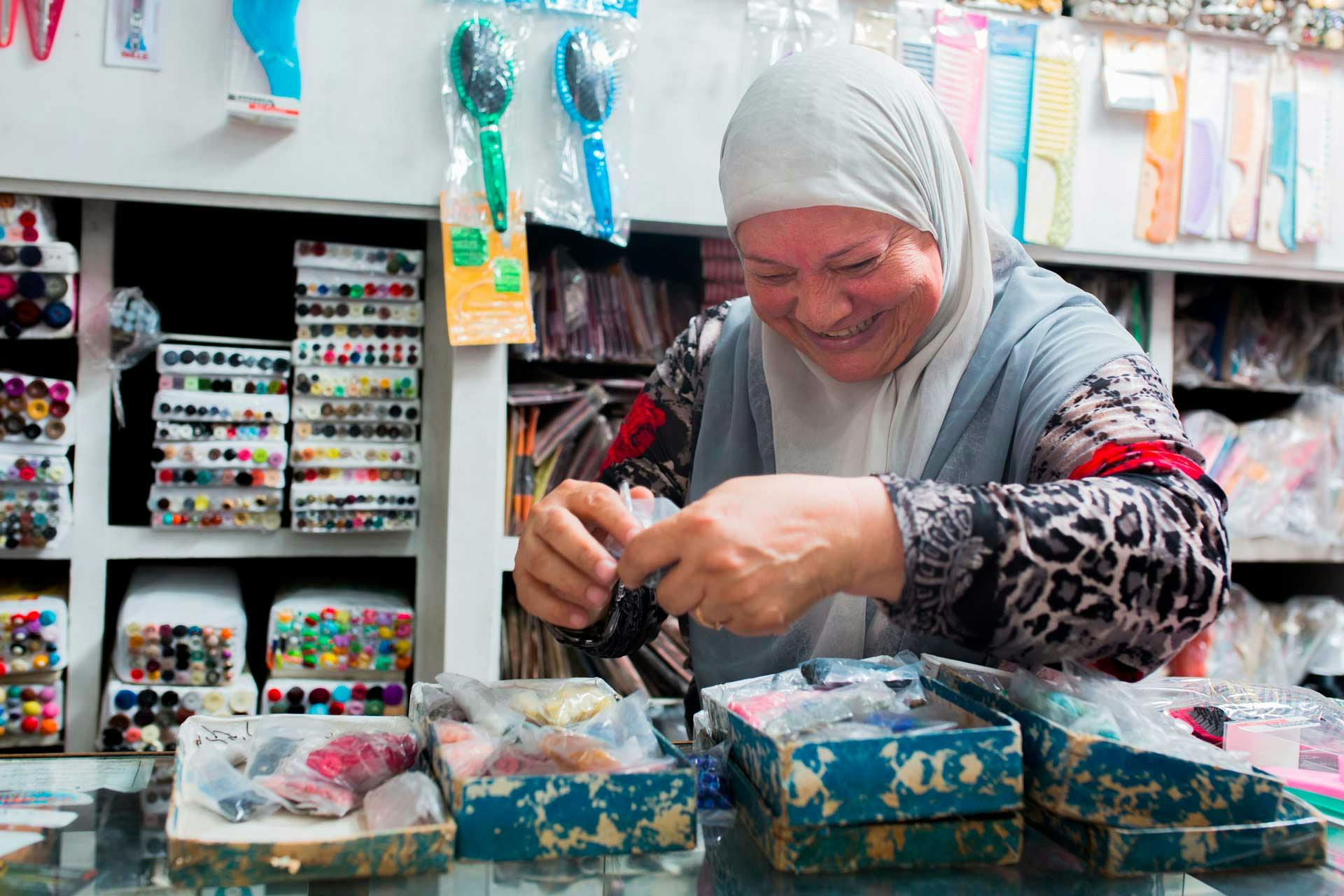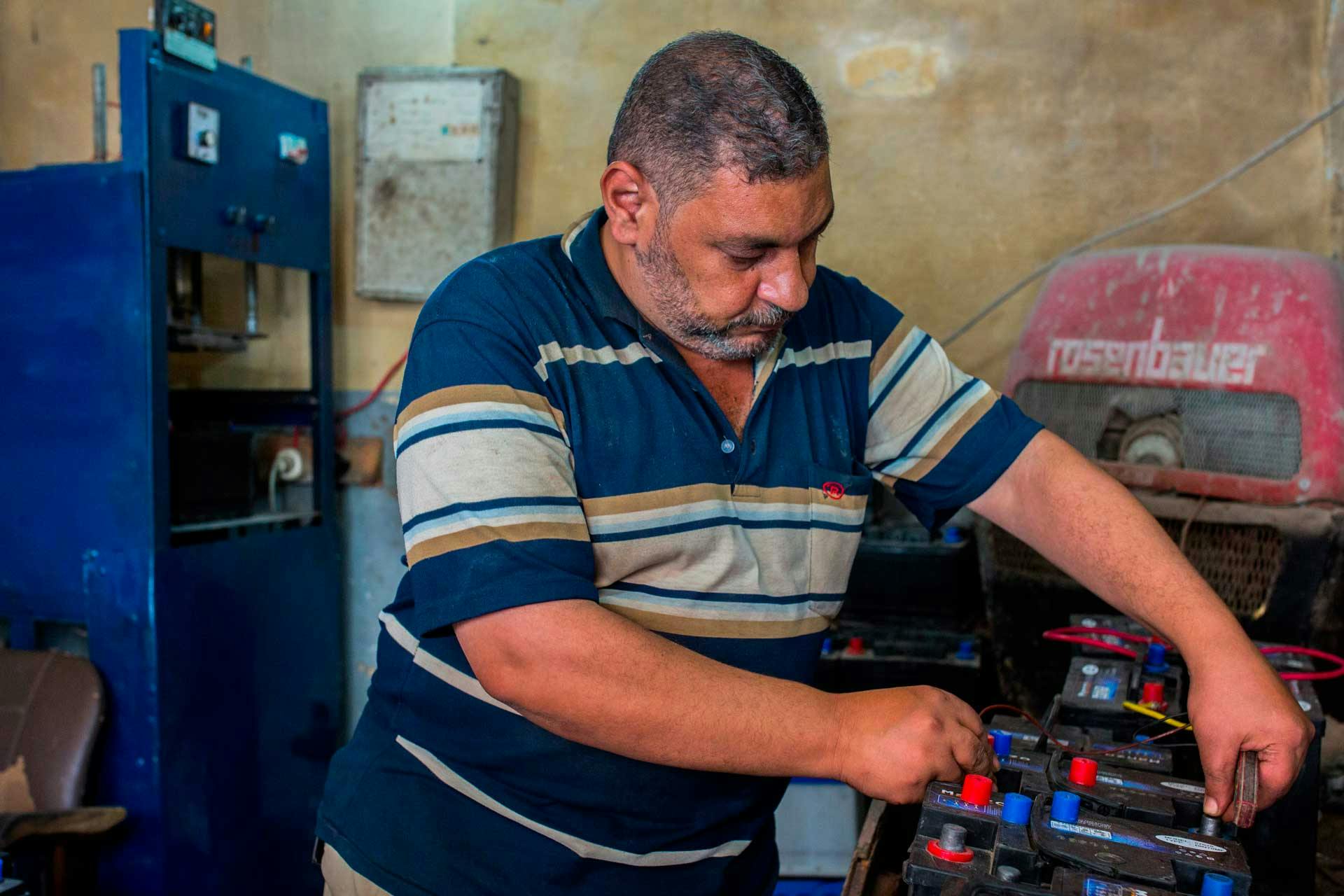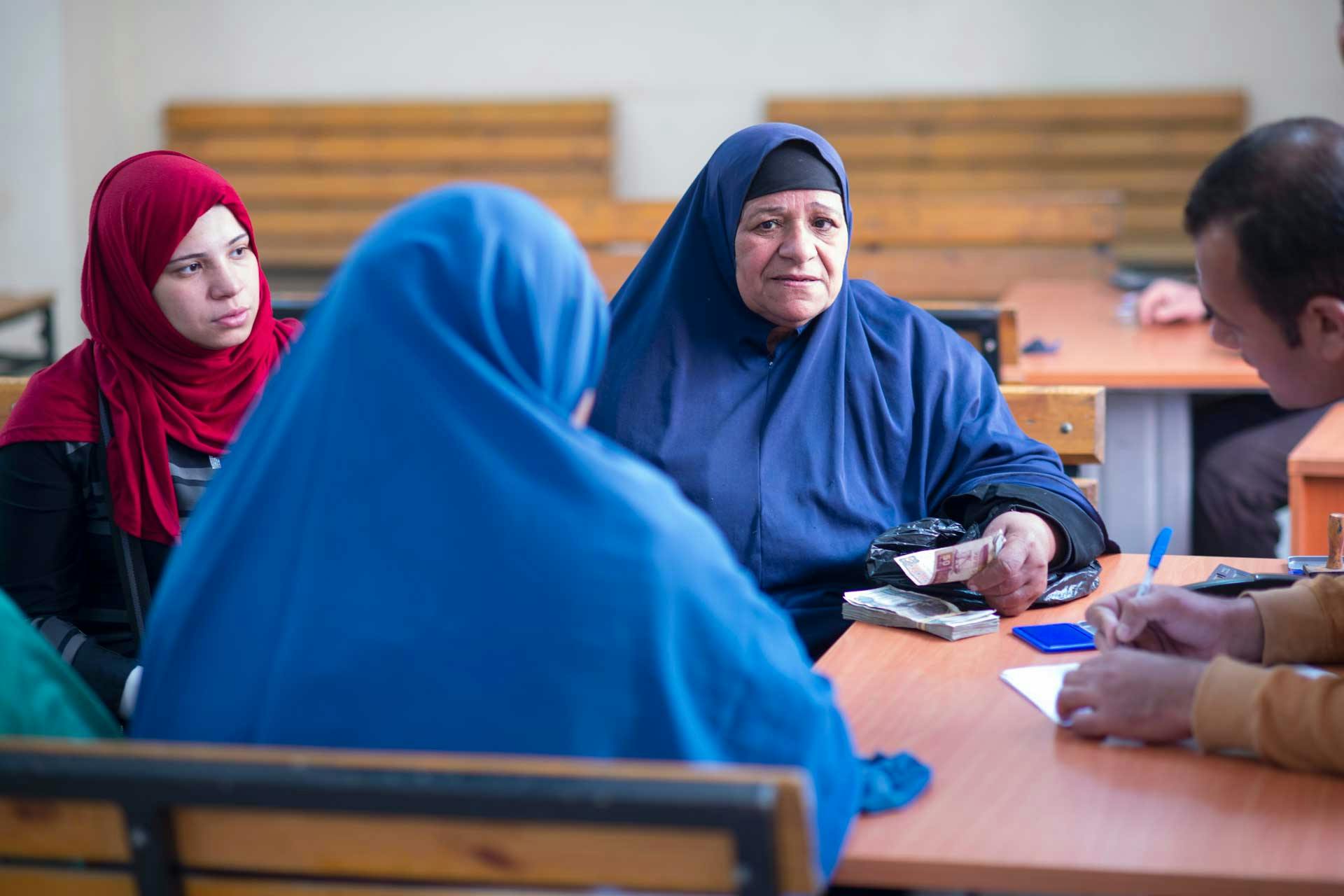
January 23, 2020
In Egypt, strategic partnerships to expand inclusive insurance
Already the #1 Emerging Customer insurer in Egypt, AXA Egypt plans to reach 3 million emerging customers by 2023, enabling them to secure their entrepreneurial journey with insurance provided in partnership with leading microfinance institutions.
5 minutes
Egypt is home to an Emerging Customer market of 27 million people, representing 39% of the working population. Earning just 4-10 euros a day, the vast majority of this segment is unbanked and unfamiliar with insurance products. However, new regulations are now changing the insurance landscape, just as AXA is expanding its range of services to serve these potential customers, with a particular focus on health and protections for microloan borrowers and their families.
Keeping families afloat through difficult times
When Wahba, the owner of a small motorcycle maintenance and parts business, passed away in early 2017, his wife and four children not only lost a devoted husband and father, they also lost their main breadwinner.
Fortunately, the entrepreneur had insurance – still a rare case in Egypt. Not only did the payout repay the microloan he had taken out for the family business, it also left a small sum for his family. With this benefit, they were able to reinvest in the family business and maintain their livelihood. If there was no insurance, the situation would have been really difficult; we would have still been in debt
, admits his son, Ahmed.
This situation is common among the 27 million emerging customers in Egypt, who represent 39% of the working population. They often support themselves through micro and small businesses in fields such as door-to-door or market sales, farming, breeding, taxi services, auto repair or seasonal work in construction. For most, their biggest concern is the loss of their family income, either through losing the ability to work or the business that generates their income. Since 40% operate in the informal sector, earning between 4-10 euros a day, this segment is especially vulnerable during times of crisis.
This is where inclusive insurance comes into play. By paying out in case of death, disability or hospitalization, insurance products deliver security in the face of risk, while extending a valuable lifeline should disaster strike. Though still a relatively new concept in the country, the case of Wahba’s family demonstrates the life-changing impact that formal insurance can have for these customers.


Egypt: a promising emerging market for insurance
One of the largest markets in both the Middle East and Africa, Egypt is now home to 100 million people, the vast majority of whom are unbanked and relatively unfamiliar with insurance products. In fact, the World Bank’s 2017 Findex study found that just 33% of adults have a bank account, with just another 2% owning a mobile money account. For this reason, together with a lack of regulations mandating compulsory insurance, Egypt is a widely underserved market with a low insurance penetration rate.
However, the Egyptian government, central bank and regulators are all pushing to reverse this trend and expand financial inclusion. To this end, a string of new measures has lately allowed for microfinance solutions to be delivered through nonbank financial institutions, while also highlighting the benefits and alleviating the reporting requirements for microinsurance.
Moreover, the Egyptian Financial Regulatory Authority recently introduced a decree making insurance obligatory on the outstanding balance of all microfinance borrowers. All these elements combined give an important boost to financial inclusion by instating a more regulated environment for financial services at large.

Khaled el Shaarany
Former Deputy CEO of AXA Egypt
The emerging customer segment has huge growth potential in Egypt and is one of AXA Egypt’s priorities. We aim to reach 3 million customers by 2023 through innovative models in partnership with banks, mobile network operators and FMCG companies.


Strategic partnerships to design innovative insurance products
To capitalize on this growth potential and meet the needs of emerging customers, AXA Egypt has partnered with LEAD Foundation. Since 2003, the local microfinance institution has extended financial services to 1 million emerging customers, 87% of whom are women.
Through this partnership, AXA offers life and hospital cash insurance to LEAD’s borrowers, with policies that repay the microloan in the event of the borrower’s death or disability as well as disburse double the loan amount to the borrower’s family. By alleviating the impact of the risks faced by customers, these life-changing policies enable families to maintain their livelihood when they need it most. In the first two years of the partnership, over 15000 borrowers have benefited from an insurance payout.
Alongside the insurance product, AXA also seeks to add value for LEAD, notably by conducting training sessions. For example, AXA organized a series of activities designed to help the teams at LEAD simplify their processes from the time the customer submits a claim through the day it is paid. Starting from an average turnaround time of 7 days, the activity helped LEAD reduce its process to 4 days.
In addition, AXA also invited LEAD teams to meet with colleagues at AXA Morocco who work with a similar microfinance institution, Albaraka, in order to learn from each other’s experience and leverage AXA’s global expertise. For customers, AXA Egypt helped launch a diabetes campaign by conducting diabetes testing at LEAD offices and educating customers on its treatment and prevention. This led to double the number of detected diabetes case for women borrowers.
Hadil Abdelkader
Former Head of Emerging Customers & Public Affairs at AXA Egypt
Bringing tangible value to customers is our key promotion tool. When you improve peoples’ lives through a partner relationship, you build their insurance culture and trigger a positive impact for the entire insurance landscape in Egypt.
Acting as a valuable partner with tailored services
To continue to meet the specific needs faced by emerging customers in Egypt, AXA has formed strategic partnerships with other microfinance institutions to expand the range of services it can offer. One example is its recent partnership with ABA to progressively cover their 450,000 customers.
Through this partnership, AXA developed an innovative model for hospitalization insurance, which pays a fixed amount to the borrower if they are hospitalized for one night or more, plus a fixed amount in case of surgery. Because customers are also concerned about finding quality healthcare, the plan is complemented with an on-site doctor for medical consultations and discounts in a medical network, including labs, scans and pharmacies.
Another illustration of this approach is the research conducted with LEAD which indicated that women borrowers, who compose around 90% of customers, often worry more about their families than themselves. In response, we worked to extend the hospitalization benefits to their spouse and children. Customers expressed enthusiasm for the change, notably highlighting the key role the hospital cash benefit can play in helping them overcome the loss of income, pay out of pocket expenses and cover post-hospitalization costs like medication.


What’s next?
Building on these successful partnerships, AXA plans to offer even more value to Egyptian emerging customers by developing innovative new services. High on the priority list is to leverage digital technology to bring quality healthcare services, for example telemedicine, through scalable business models.
In parallel, AXA Egypt is currently exploring an opportunity to penetrate the agriculture sector, which is a largely underserved market in Egypt. For the first time in Egypt and the Middle East region, AXA plans to offer parametric crop insurance to smallholder farmers and their families.
In addition, AXA Egypt is exploring an insurance product for small breeders of dairy cows. Indexed to their individual milk production as recorded at milk collection centers in rural areas, the new initiative would reach a completely underserved market through a new distribution channel, outside of the traditional microfinance institutions.



